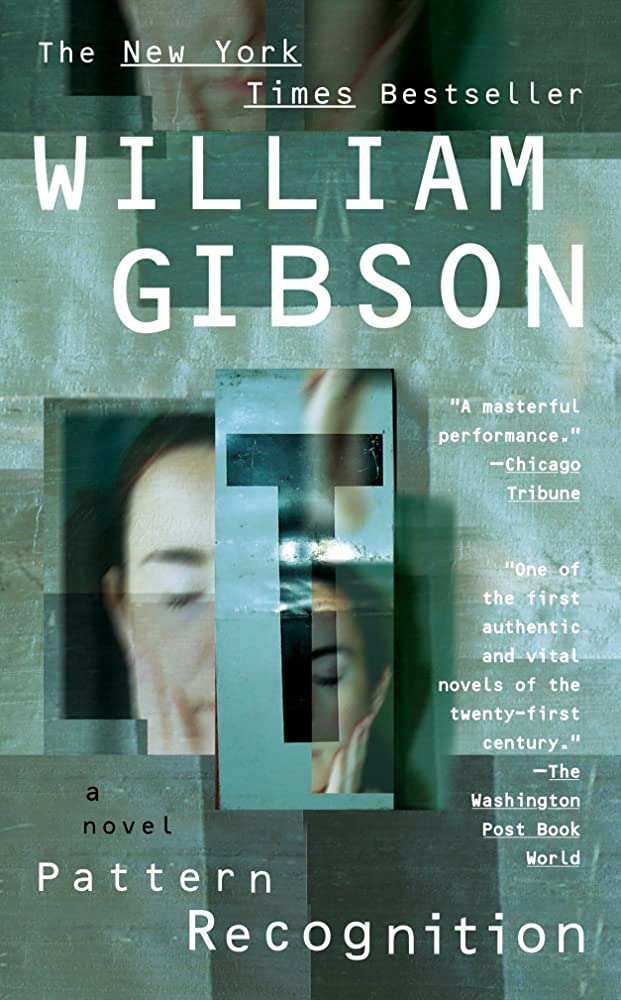Pattern Recognition
It was funny to read 2002-era reviews of this book, which universally bemoaned the "tres hip"-ness of Gibson's brand deployments (iBooks! MUJI!) as a flaw that would instantly date its relevance — and nary a mention of how grounded the book was in the September 11th attacks, which I supposed back then was a taboo target of criticism (or perhaps the universality of the attacks really did make it seem like fertile emotional ground.)
Two decades later, Cayce's obsession — allergy — with brands feels not just modern but shockingly prescient. This does not feel like a book written in the early aughts, before the iPhone zeigeist. It feels predictive and understanding of our relationship with media and brand in much the same way Infinite Jest did; a reckoning that the point is not the technology itself, the point is the dependence and the ambience.
It struggles in the same way that most Gibson does; the prose, steely and evocative, gives the setting and opening actions a sense of cool and propulsion that the book's falling action and climax fails to make good. Which is fine! Gibson to me is best understood as an analogue to Villeneuve — more interested and competent at building mood and setting than story-telling qua story-telling. I still had a fun time reading it, and I think many of the little asides will stick with me for a while.
